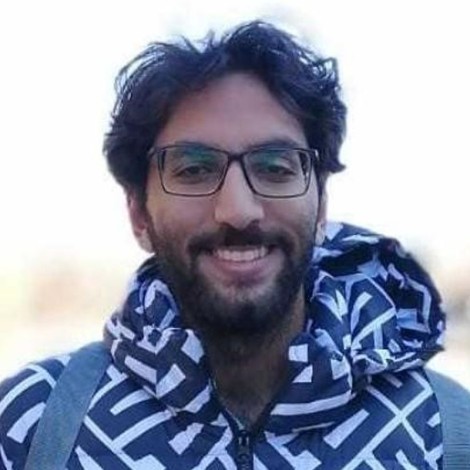
Ragy Amin (Class of 2024)
Cairo, Egypt
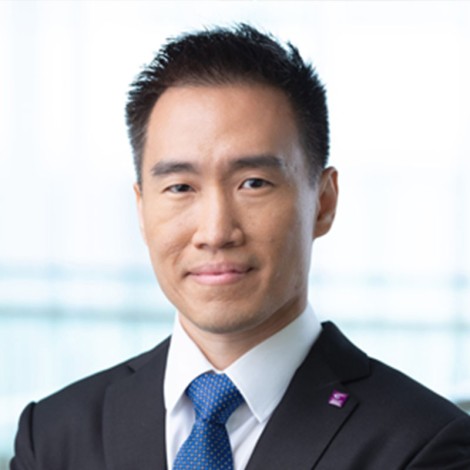
Chew Seen Meng (PhD'07)
Hong Kong, China
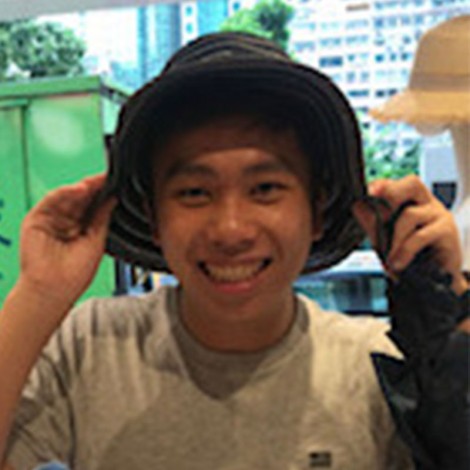
Miles Chiu (Class of 2023)
Hong Kong, China
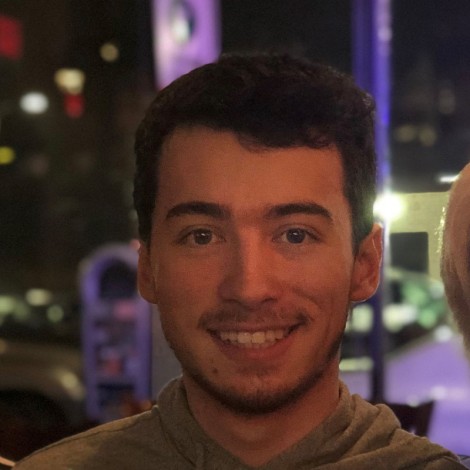
Bay Hodge (Class of 2021)
Connecticut, USA
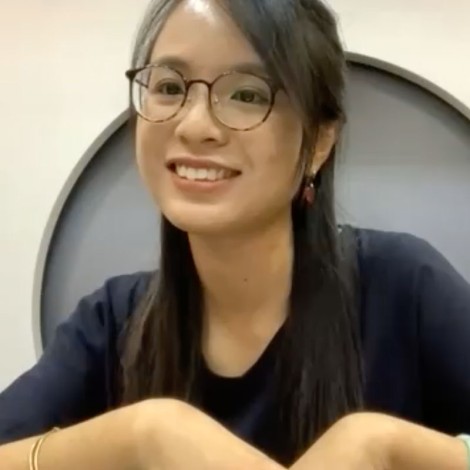
Heidi Wong (Metcalf Employer)
Hong Kong, China
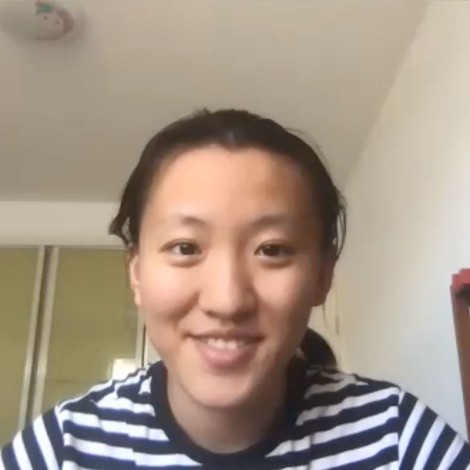
Echo Lyu (Class of 2023)
Nanjing, China
I am Ragy Amin, I am an undergraduate student at the University of Chicago. This Summer, I am working as a digital marketing intern at a coding bootcamp in Hong Kong called Xccelerate. I wanted to work at Xccelerate because I believe that learning to code is very important and it should be made accessible to all people of different income levels. Through their hybrid model of teaching, Xccelerate is one of the most cost-efficient coding bootcamps out there.
There is an added benefit to working at Xccelerate, I get to experience some of the culture of Hong Kong. While this remote experience isn’t ideal to enable me to get a complete feeling of the culture there, it was great to work with people from Hong Kong and learn more from them. Hopefully I’ll travel there when the pandemic is controlled.
My internship experience was very interesting. For the first part of the internship, my work was to make a report on Xccelerate’s performance. After some research, I learned that the best way to make our report credible was to partner with the Council on Integrity in Results Reporting (CIRR) and abide by their standards. I have met with their representatives and they have shown us how to collect the data of future cohorts properly.
For the second part of the internship, I am working on marketing to college students. My work involves writing blogs, making paid ads for these blogs and optimizing existing blogs. I will finish my internship by the end of this week.
My expectations about having a remote internship weren’t exactly accurate. I thought it would save a lot of time because I don’t have to worry about transportation or logistics. While this has been mostly true, I didn’t account for the time difference. I have to wake up at 5:30 am to attend our meeting or stay awake till we finish the meeting. Despite it being once or twice a week, it is still enough to shift my sleeping schedule for the whole week, making it very hard to enjoy the extra free time that I have because the internship is remote.
Not being able to communicate with many employees or interns is another downside. I am happy I can communicate with my fellow interns in my team and our supervisor, but of course it’s not the same as working in-person.
Another challenge was making sure I deliver my tasks on time. I managed to keep myself accountable by sending reminders to myself every workday of the tasks I have to work on. While it wasn’t ideal, I managed to submit most of my tasks on time (albeit sometimes cutting it close). My supervisor also managed to keep track of my work to make sure I submit my tasks on time.
A huge pro is that I can do a lot of things in parallel to the internship such as taking online courses or working on my startup called Talklet. Talklet is a mental health platform that won 3rd place in the startup competition, the College New Venture Challenge at the University of Chicago last year. We plan to launch this Fall. Talklet connects active listeners to people who want to vent and feel heard while making it cost-efficient and convenient.
Another pro is that it would’ve been impossible to travel to Hong Kong during COVID-19, a remote internship enables me to work at Xccelerate and not worry about travel-related issues.
This remote internship has taught me a lot about how I need to work remotely afterwards. Something important I need to change is to find a workspace at home that isn’t my room. I work in my room most of the time and now it feels like an office. Even when I’m not working, I feel I have something to do and that I can’t rest. This isn’t a huge problem for a 10-week internship, but it is something I need to take care of if working remotely will continue for a while.
I also think it is important to make sure I get a few days off. It is easy when work is remote to continue working during weekends and I end up having no free days for several weeks, which isn’t great for my mental health. I think my supervisor helped with this problem by telling us she won’t talk about work during weekends so that she and us can get a break.
I hope that we find a vaccine soon and that we reach the mass production phase. However, I think that COVID-19 has changed and will change a lot of things when it comes to work. Digitization has become way faster than ever before because everybody needed to get things done remotely whether that’s work, learning or even food delivery. One advantage of the current digitization is that most internships now are remote which enables a lot of people to work in companies and countries that weren’t easily accessible before.
I don’t think that working remotely will be the norm just because companies need people present for their HR to instill in them the companies’ values and culture. It is also harder to make people as productive as they would be at work. In addition to that, it would be very easy to feel that working remotely is just like freelancing. This isn’t too bad for millennials and gen z, but it would be harder for people who are older and are used to working in-person.
One thing is certain, COVID-19 has both separated us and made us closer. While it is important to have a person physically present for bonding to be stronger, Zoom has enabled us to see people’s homes, families, and pets. This experience has made us share personal moments and experiences that we couldn’t have shared before. I guess this could be a silver lining of the pandemic.


Meeting with the Xccelerate Team.
I am currently an Associate Professor of Practice and Associate Dean for External Engagement at CUHK Business School in Hong Kong.
Since February 2020, all classes and learning activities at our university have been conducted online through Zoom.
For an MBA business practicum project which I supervised, most meetings with the client company (Zhong An International, an insurtech company) were also held via Zoom.
Since May, as the virus situation in Hong Kong seemed relatively under control, the government has been gradually relaxing social distancing measures and allowed gatherings of small groups of people.
So, in June, we were able to do the final presentation of the project in a hybrid mode in the client office. My colleague, Serena, and I visited Zhong An’s office in Cyberport, Hong Kong; while the four students dialed in using Zoom as they were located in Minnesota, Shanghai, and Guangdong, China. After the students presented their work, Serena and I presented souvenirs to representatives of Zhong An International, as shown in the photo above.
I believe that the hybrid mode (online + face-to-face) of teaching and learning is likely to stay even after the pandemic is over. Technology has advanced so much that it allows us to do many things now that were unthinkable just a few decades ago. Imagine if this pandemic has occurred in the 80s for example, the whole university would probably be completely shut down and all teaching programs would be suspended for at least half a year or more. We need to be thankful that technology has continued to progress and helped us overcome many challenges in life.


I am in a white shirt, standing second from right, presenting a souvenir to Mr. Ian Lee, strategy director at Zhong An International. Serena is at far left, the other standing gentlemen are staff at Zhong An. The four students are shown on the TV screen, as they dialed in from four different locations using Zoom.
This summer, I worked with the University of Chicago Yuen Campus in Hong Kong for 10 weeks. To me, the prospect of interning at Yuen Campus was quite exciting – I had the chance to work with the institution I’m studying at, yet it is outside of the States! In fact, I was quite astonished to find out that there was a proper UChicago campus in Hong Kong – so, it was a no-brainer to take on this role and to further understand how the Yuen Campus operated individually and together with the main campus in Chicago.
But, even before my 10-week internship began back in mid-June, I knew this was going to be a unique experience. Although I was mentally prepared to work both on-campus and at home, there was a lot of adaptation that needed to be done when the time actually came. For the first few weeks, I was quite delighted with the scheduling of working on-campus for two days and from home the rest of the time. When I was on campus, I was able to physically interact with colleagues, and we were able to discuss and lay out concrete plans and actions for current and future projects. This balanced very nicely with the days I got to work from home – I could have the alone time to execute ideas that were discussed with colleagues.
However, as all of us began settling into this weekly routine, a sudden third wave of coronavirus hit Hong Kong, leaving no other options but to close the campus for health and safety and having all of us work from home. When this all first happened I was hindered by the thought of whether the lack of physical interaction would affect our productivity and ability to move forward with tasks. But it soon became clear that the same amount of progress was made because of two important factors – personal responsibility and interacting with one another on a frequent basis. For me, the former came down to me continuing to set a rigid schedule for myself, and working at home as if I were physically on campus. I had to admit, the comfort of home provided plenty of distractions, but I made the conscious effort to mimic a work setting – this ranged from my work table to the way I dressed! The latter was all about every staff not hesitating to reach out to one another as if we were all on campus. I think we did an excellent job of maintaining frequent contact, particularly via Zoom, which mimicked a physical interaction as much as possible. Having gone through this routine for the past six weeks, I have come to realise that this point cannot be understated. Staying connected and understanding the progress and roles of everyone else, as we remain distant, is so vital in efficiency and achieving the tasks at hand.
This brings me to my favourite project during my internship – the crowdsourcing COVID-19 project! Given the current circumstances, I thought this project was a perfect Yuen Campus initiative. Not only does it touch on the global issue of coronavirus that all of us are affected by, but it also connects members of the UChicago community together, which is very helpful in these times where social interactions are much in need of. I remember this project was introduced to Bay (the other summer intern), myself and a few other staff members back in early July. At that time, even though we were enjoying the “two days on campus three days at home” weekly schedule, I already thought this was going to undoubtedly pose obstacles, particularly given all the logistical and organizational work that had to be done for something to even emerge. Two weeks later, the sudden spike in coronavirus cases forced us to work from home indefinitely; at this point, I frankly thought that this project was made even more impossible! Yet, our organizational and communication skills were excellent; shared documents were made, emails flew back and forth to people’s inboxes, and frequent zoom calls were done. This really helped all of us understand the roles everyone undertook in this project, but we were also able to perfectly track everyone’s progress and made ourselves available for help anytime. Just five weeks down the line, Bay and I have now interviewed four alumni each, with plans for our friends to interview more alumni in the coming weeks. I was perhaps even more amazed at the fact that through our collective inputs, we made a quality one-minute promotion video using the materials we have had so far! I am very excited of this project’s future, and it has further taught me that no matter how seemingly daunting of a task we are faced with, collective effort and effective communication ought to lead to success!
The other thing I must say about this crowdsourcing project is that I am extremely grateful to have had this opportunity to connect with some in this extensive UChicago community. I was particularly inspired by Adam, whom I thought shared some very interesting perspectives about this global pandemic in the context of his studying and teaching of Ancient Chinese and East Asian studies.
Another project that I was actively engaged with and found extremely useful and rewarding was data analytics. Prior to this internship, I had no experience in using Google Analytics nor creating reports. But, as time passed by, being frequently engaged with Google Analytics and looking at previous report samples sent over by Angela helped me learn the techniques required in both. I was able to extract necessary data and then synthesize it as concisely as possible whilst delivering the key messages the data was indicating. I was wonderfully guided through this process by Angela and Kitty, and I have come to realise how important this is in all contexts in life. The ability to observe data or statistics and subsequently be able to analyse it is vital in recognizing successes, diagnosing shortcomings and coming up with action points and solutions going forward. Before this internship opportunity, I was not aware of how valuable a tool like Google Analytics was in breaking down the strengths and weaknesses of a webpage!
Beyond all that I learnt and experienced during this internship, I am grateful to be a part of so many unique projects this year has to offer, mainly because of COVID. I remembered Kitty approaching me shortly after introducing the crowdsourcing project and said, “Miles, these projects you are doing right now are by far the most interesting ones we’ve assigned in all the interns we’ve had.” I was initially taken aback in hearing it but quickly came to realise how true of a statement this was. If this global pandemic did not exist, projects like CCHP would not have come about as well! I am so grateful to have such a special opportunity, and to be guided by the wonderful Yuen campus staff as they themselves adapt to new skills too!


My workspace at home.
For many college students across the globe, the COVID-19 pandemic completely disrupted the summer plans they had worked so hard for. For some, internships became remote. For others, internship offers, and even job offers, were revoked entirely.
I was originally supposed to spend the summer exploring Hong Kong and the UChicago Francis and Rose Yuen Campus that sits upon Mount Davis. I was looking forward to working with the Yuen Campus team in person and developing my Chinese language proficiency during my time in Hong Kong. Instead, I spent the summer cramped in my family home in Connecticut with my two parents, grandmother, two dogs, and my—annoying—brother.
Despite this, I had a wonderful summer and could not have asked for a more interesting and educational internship experience. The incredible team at Yuen Campus (most notably, Mark, Kitty, Gigi, and my fellow intern, Miles) went above and beyond to ensure my experience would not, even for a second, feel disconnected from what was happening in Hong Kong, even though I was half-a-world away.
I already had experience working remotely the summer following my second year at UChicago for a tech company headquartered in North Carolina so working from home was nothing new to me. However, working remotely from the opposite side of the planet is another beast entirely. Dialing into calls at 10 PM or 11 PM became a regular occurrence. What might have been a nuisance to many, however, was a unique blessing for me. As somewhat of a night owl, I’m more alert and tend to do my best work after sundown. Perhaps one change that might occur because of the COVID-19 pandemic is a global reevaluation or breaking down, of standard office working hours. Some people might perform their best work between the hours of 9 AM-5 PM, but others might prefer 2 PM-10 PM. Remote work, flexible schedules included, might become the new normal for many industries. Only time will tell.
To digress a bit more, I wanted to speak of some unexpected benefits of quarantining and working remotely. For starters, one tends to have a little more free time when he does not need to find time for haircuts, the gym, weekend excursions, and so on. In April, I purchased, on impulse, a cheap acoustic guitar off Amazon. A few months of lackluster practicing later, I’m proudly stumbling my way through renditions of Fleetwood Mac’s “Landslide” and Springsteen’s “Thunder Road”–there’s a decent chance that by the time I reread this submission in 100 years, I’d have finally mastered them. And on the haircut note, quarantining also affords the unique freedom of not having to worry about what the general public might think of one’s appearance. I took this liberty to decide I’d go without shaving my face until I absolutely had to. In a couple of months, I’d grown a beard that a different man might have been able to grow in half a week, but it was a beard nevertheless. My mother complained, and my brother did too, about my new “look,” but since I knew I would never be revealing it to the public, I had nothing to worry about. That was, until, I joined one of those late-night Yuen Campus team calls but did not realize for this particular call, we would be using video in addition to audio. And so my new look finally made a public appearance. Oops.
Through my internship, I was able to connect with people and ideas all across Asia from the confines of my home. When I got the news that my internship would be remote, I never would have imagined I would be able to, in a sense, travel to India, Japan, Thailand, Vietnam—the list goes on. Through assisting in the research and development for a web-series centering on pop culture, arts, and other modern social phenomena in Asia, I developed my knowledge of the many unique cultural happenings in today’s Asia, though I know I am still just scratching the surface of Asia’s interesting phenomenon. To give just a couple of examples, I examined anime, manga, and video games in Japan as a channel of escapism, and I explored K-pop, the musical genre, as a significant global phenomenon and Korean soft power.
Most importantly, through the COVID-19 Crowdsourcing History Project, I had the opportunity to connect and have insightful interviews with interesting UChicago alumni scattered across Asia. Through these conversations, I learned new perspectives from well-traveled people of a variety of cultural backgrounds. With Chad Ovel in Vietnam, I learned that combating environmental destruction must be a global effort and how COVID-19 affords us the perfect time to switch to environmentally conscious production methods. With Aditi Mody in India, I learned the difficulties and surprises involved with operating an institution in a country ravaged by the pandemic. With Vipan Prachuabmoh in Thailand, I learned the levels of complexity and planning that go into ensuring the safety of a country’s most vulnerable populations. And with Pandu Sjahrir in Indonesia, I learned the importance of having a positive outlook even in the direst of times.
Conducting interviews through the CCHP reminded me of how vital it is to form new connections and have conversations with people around the globe. COVID-19 has made meeting and staying in touch with people difficult, but not impossible, and the CCHP, along with my phenomenal internship experience this summer, are testaments to the fact that even a global pandemic cannot keep people apart or ideas from being shared.


Workspace with a view.
Museum beyond the Walls: CUHK Art Museum’s Online Attempts
"The pandemic accelerates the pace (of moving museum collections online), but we are trying to be cautious," says Ms. Heidi Wong, the Assistant Manager of Education-Outreach-Communications from Art Museum, The Chinese University of Hong Kong. She smiles when talking about two upcoming online exhibitions and their preparations. With the fast development of technologies such as VR (Virtual Reality), 360° panorama, and multimedia, digitalization in curating and museum education has undergone hot debate over the past years as museums step out to seek new methods in displaying their antiquities. However, with the COVID-19 pandemic locking people in their quarantine bubbles today, going online becomes a must for museums. For most visitors, watching museum items around the world through screens at hand is easy and relaxing. Time seems to fly slower as one stays home, which befits the pace of appreciating arts. Nonetheless, museums see it as a conundrum to communicate their treasures comprehensively and adequately online. This is an unprecedented experience for every museum worker, let alone for first-year intern Echo Lyu from UChicago, employed at the CUHK Art Museum this summer. On August 21st, 2020, Gigi Yan from UChicago Francis and Rose Yuen Campus in Hong Kong interviewed Heidi Wong and Echo Lyu about how CUHK Art Museum is transitioning its exhibitions “Amazing Clay” and “Hong Kong Impressions” online and their stories of remote working.
Can you tell me more about the work that you are currently involved in, such as “Amazing Clay” and “Hong Kong Impressions”?
For "Amazing Clay", which is about Chinese ceramics, the museum plans to upload gallery 360° panorama, lecture videos, and create a series of family activities. "We try to make a Mantou version of a green-glazed porcelain pillow. " Echo laughs as she introduced this creative food. She has come up with the recipe and made a video teaching how to create Jiaotai - a unique technique to craft the ceramic surface with curves of staggering colors — only that edible ingredients are used instead of clay and glaze. "I never thought that my internship would involve kitchen work." Echo confesses her confusion when Heidi first brought this idea up. She found it unimaginably engaging afterward. They have also been working on an H5 quiz "Test Which Ceramics You Are ", an interactive page called the "Ceramics Zoo" and stories about chatting ceramic pieces. Echo has also participated in brainstorming activities for "Hong Kong Impressions", an exhibition that will be available starting from 7 September 2020. This exhibition illustrates the earliest tourist attractions of Hong Kong that attracted artists to immortalize them by paintings in the 1940s-70s.
How does working remotely and moving to the virtual world influence the museum?
Heidi talks about the museum's changes during the pandemic as the premise must close itself from the public. An online exhibition is not merely shooting artifact photos and uploading them. "We have to do more because the physical experience cannot be provided online," Heidi explains. They have launched new initiatives to attract audience online, for example setting up the museum’s Google Arts and Culture page, but Heidi emphasizes that they are cautious about going digital. "We see ourselves as a research institute, after all," she explains their worry on unintentionally trivializing exhibitions into online jaunts for mere stimulation and not content. Echo feels a similar concern that visitors may be impatient with textual materials online, yet other approaches cannot express the core ideas of an exhibit as comprehensively as textual descriptions can
There are many breakthroughs, however. "Heart to Heart Talks " is a video program that invites non-art scholars, doctors, monks, and people of different walks of life to discuss items from the museum. In one of the episodes, a Buddhist monk was invited to discuss thriving during a time of darkness while appreciating a zen painting. While in another episode, a doctor explored the survival condition of viruses on relics. By creating space for non-art scholars and laypeople to discuss art with art experts on different life scopes, Heidi believes that these discussions and programs will remain relevant even after the pandemic. Another benefit is that audience's feelings are more visible to the museum managers via data shown from website analytics. Quantitative results from digital platforms allow the museum to approach its audience in a more targeted way. Heidi can reply to visitors in a timelier manner when online as well. Heidi adds that it's convenient for the Education and Outreach team as their work can all be done from home, though she sometimes needs to carry a lot of heavy catalogs back home from the museum for reference.
Despite many effects of the pandemic, research are able to progress, and conservation works continue; t Much business of the CUHK Art Museum continues and tries to adapt to the new normal.
What is it like to intern remotely?
Echo says she was skeptical about online museums, but the internship challenges her thoughts. The pros are that she does not need to pay for traveling or housing in Hong Kong for her internship, and her work environment cannot be more familiar to her – a desk at home. The downside is that the remote internship lacks in-person communication, and she cannot observe the museum works of her other colleagues. Working remotely lacks luster in her opinion, as she believes a great deal of internship is about experiencing the work environment. In particular, Echo details the difficulty to "get into" the “Hong Kong Impressions” images, despite her several short visits to Hong Kong in the past. She hopes that she can "just be there and check out the spots whenever I need to as I browse the paintings." She reads the catalog acquisitively, stares at "Pearl of the Orient" and other paintings for long, and watches movies and videos to imagine Hong Kong. "I just couldn’t," her voice grew impatient; it is hard to fully immerse into the spirit of an exhibit without sniffing the air of its site. She has chosen this internship at CUHK, particularly as she was interested in Hong Kong's culture and the stylistic atmosphere at CUHK. Nonetheless, she has busied herself with creating various activities from pictures shared to her via Google drive. On the other hand, Heidi values Echo’s presence in the team as she provides different insights to this exhibit as a non-local. Echo does wish her next internship is in-person, although she is thankful for learning about online exhibitions and understand how every museum strives to meet the demands presented by current circumstances.
What does your typical workday schedule look like, and, for the intern, how have you been keeping yourself accountable in the absence of a supervisor?
Heidi highlights that she has been enjoying lunchtime with her family every day, which is unusual in the past as she wouldn’t be home for that meal, and lunch is always a fast meal. She is glad to be at home but still be connected to her colleagues without needing to spend two hours in transit every day. She also regards the museum's closure as a chance to visit and learn from other museums online and find new inspirations. "The pandemic renders us more need and more time to learn about digital strategies," says Heidi. Her workday lengthens, however, because it is easy to forget about time as one stays at the same place for life and work. "It's very hard to turn off my work mode once I start. I just go on and on," quoted Heidi. On the contrary, Echo finds it equally hard to turn on her work mode without being supervised. Thanks to the fact that her work is project-oriented, weekly deadlines on Tuesday and Friday have been her real supervisor. She would hardly be productive until deadlines draw near and then works crazily to finish her projects on time. "I've got an unhealthy work schedule," she jokes. A detailed plan of project timelines is helpful to set a proper pace for Echo. Her interest in getting involved in the projects served as a primary motivation, too.
How does COVID-19 change the entire working environment for an intern, supervisor, and even the future working culture?
"It questions why we work," Echo says as she reflects on her internship. She thinks the pandemic helps to clarify the elasticity of every kind of work. "It's like going to my professors’ office hours. When I am at school, I go there frequently; when I am taking zoom university, physically visiting the professor becomes impossible, and thus, unnecessary. I might end up not going to office hours for the entire quarter." She says working remotely likewise challenges the meaning of everyone's work, especially when they confront that their work is elastic to others. "What do we work for? Do we work for responsibility, or love, or helping others, or money, or what?" She leaves a question. Supervisor Heidi stresses that she longs for the human connections that are always available when works onsite. She misses informal talks with people and face-to-face chats with young interns. The past half-a-year’s communications based on emails tend to confine everyone in their business mode, and the human side of work is fading away.
To Echo, the most memorable moment during her internship was when Heidi surprisingly invited Echo to add her on WeChat. The intern is very grateful for this move as they can chat anytime without sending a formal email. Echo admits that she felt truly remote when writing letters to an email address, but she suddenly felt like being at the museum in person as they started a more instant and comfortable messaging on the phone. "I can send emoji and stickers. It added a human touch to my work experience," Heidi smiles when talking about this. Remote work requires people to be more disciplined and makes us feel robotic. Only by putting enough emphasis on communications can the human side of other workers emerge from behind Zoom and emails.


Echo's workspace at home.